About Broadlawns Medical Center New Connections
Welcome to Broadlawns Medical Center New Connections. Our center specializes in helping those struggling with alcohol and substance abuse, as well as those with dual diagnoses. We offer a variety of programs and services to meet the needs of each individual, including an adult program, a men’s rehab program, a women’s rehab program, and a young adult rehab program. Outpatient and partial hospitalization options are also available. Our experienced and compassionate staff provides a variety of evidence-based therapies, including cognitive behavioral therapy, dialectical behavior therapy,rational behavior therapy, and trauma therapy. We also offer family and group therapy to support our clients and help them heal. If you or someone you love is struggling with addiction, we urge you to reach out for help. We are here to support you on your journey to recovery.
Addiction Treatment Programs
Alcohol Rehab
f your life has been negatively impacted by alcohol use disorder, an alcohol rehab in Iowa can help. In an alcohol program, you’ll not only receive treatment, but you’ll participate in activities, receive peer support, and learn how to have fun without alcohol.
Dual Diagnosis
Iowa dual diagnosis treatment is an integrated approach that addresses both your mental health and substance use. In dual diagnosis programs, the activities, peer support, and counseling are tailored to the unique needs of those with mental health concerns. This may include additional therapy, medication, or peer support.
Opioid Addiction
The best way to achieve recovery from opioid addiction is by completing a high-quality rehab in Iowa and applying the tools you learn to stay in sobriety. Common services include counseling and classes on coping skills, emotional management, communication, and other key life skills. Opioid rehab programs can provide inpatient or outpatient treatment.
Adult Program
Choosing an adult program in Iowa can be a great way to address important life issues while also getting addiction treatment. In an adult program, the activities, peer support, and counseling are tailored to the unique needs of this age group. This may include talking about how to build a career, raise a family, and handle the many responsibilities of independent living.
Men's Rehab
Choosing a men’s rehab in Iowa helps give the support you need in overcoming addiction and learning to handle gender-specific challenges. In a men’s program, the activities, peer support, and counseling are tailored to the unique needs of men. This may include talking about career development, fatherhood, communication strategies, and more.
Women's Rehab
Women’s rehab programs in Iowa can help women make healthier life choices and avoid common mistakes. In a women’s program, the activities, peer support, and counseling are tailored to the unique needs women have. This may include talking about building a career, motherhood, relationship safety, and more.
Young Adult Rehab
A young adult rehab in Iowa addresses the unique needs of young people transitioning to adulthood. In a young adult program, the activities, peer support, and counseling are tailored to the unique needs of this age group. This may include talking about how to start a career, have a family, and live independently.
Insurance Coverage
Medicaid
Paying for rehab in Iowa can be done in multiple ways, including using Medicaid if you qualify. This can be helpful for those struggling to pay for treatment. Look for centers that accept Medicaid and offer the levels of care you need, such as detox, inpatient, and outpatient treatment.
Private insurance
In Iowa, using private insurance is a good way to pay for rehab. Insurance plans vary, so it’s important to contact the insurer for details. The best way to keep costs down is to choose a treatment center in your plan’s network.
Self-pay options
Self-pay for rehab in Iowa means using your own money or a bank loan to pay for treatment. You can send money to a center electronically, write a check, or take out a medical loan.
Financial aid
Those wondering how to pay for rehab in Iowa may benefit from looking for financial aid programs. Financial aid directly from the treatment center is one option, or you might be able to find grants or scholarships from community groups or local non-profits.
Financing available
If you’re struggling to pay for rehab treatment in Iowa, consider asking if financing options are available. Some centers offer financial help such as grants, scholarships, or payment plans. You may also decide to get a medical loan.
Sliding scale payment assistance
Finding a rehab in Iowa with a sliding scale payment plan can help make treatment more affordable. With a sliding scale, you’ll pay less depending on your income and family size. This makes it much less stressful to get the care you need.
Medicare
In Iowa, using Medicare to pay for rehab can allow you to get the care you need. Your insurance plan can pay for some or all of the costs of rehab, especially if you choose a center that’s in the Medicare plan’s network. Be sure to get the full details before you start treatment.
Levels of Care
- 1
Outpatient Rehab
For those who are more medically stable or have finished an inpatient program, outpatient treatment in Iowa can be a useful form of rehab. During outpatient treatment, clients have independence outside of sessions, allowing them to work, attend school, and practice their new habits in real-world situations.
- 2
Partial Hospitalization Program
In Iowa, partial hospitalization programs (PHPs) allow you to live independently while getting the intensive care you need to establish long-term recovery. PHPs include multiple approaches, including cognitive behavioral therapy (CBT), motivational interviewing (MI), and holistic therapy options.
Therapies
Cognitive Behavior Therapy
When you’re struggling with addiction in Iowa, your actions and thoughts may not be rational. Cognitive behavioral therapy (CBT) can help you challenge your thoughts and adjust your actions accordingly. CBT can help you identify and challenge maladaptive thoughts, calm your mind, and face your fears rationally.
Dialectical Behavior Therapy
When you’re struggling with addiction in Iowa, stressful situations can be a trigger. Dialectical behavioral therapy (DBT) allows you to learn new coping strategies and build your confidence so you can make healthier decisions. DBT can help you replace problem behaviors with skills that give you a healthier way to manage stress and handle substance use triggers.
Family Therapy
One way to address the family conflict and challenging relationships that may impact your substance use is during family therapy in Iowa. Family therapy is a common part of both inpatient and outpatient substance use treatment and may be used to help address trauma, build better relationships, and help loved ones become part of your support network.
Group Therapy
One way to share your feelings and get feedback during rehab in Iowa is during group therapy. Group therapy is only one of the elements of treatment, along with activities, peer support, individual counseling, relapse prevention, and more. Together, all these methods support you in establishing long-term recovery.
Individual Therapy
It’s easy to feel isolated when you battle substance use, but individual therapy in Iowa can give you a professional ally in overcoming the roots of addiction. Substance use treatment includes detox, inpatient treatment, and outpatient care, and individual therapy may be a part of each of these stages. The goal is to help clients address the roots of addiction, develop motivation to change, and create new habits for a substance-free life.
Rational Behavioral Therapy
The goal of rational behavior therapy in Iowa is to address irrational beliefs and thinking patterns to create positive change. RBT can help you identify and challenge maladaptive beliefs, reframe them, and face triggering events rationally.
Trauma Therapy
Sometimes addiction is a way to self-medicate and avoid how you feel about past traumatic events. Trauma-informed therapy can help you address these feelings and build a better life. Substance use and trauma are interrelated, and trauma-informed therapy involves working with the therapist and your support network to create healthy coping skills, become empowered, and improve resilience.
Accreditations
Location
Contact Broadlawns Medical Center New Connections
Top Drug Rehab Centers in Iowa
-
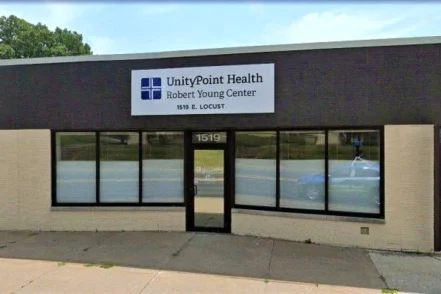 Iowa
IowaCADS Center for Alcohol and Drug Services Locust
1519 East Locust Street Davenport, Iowa 52803
-
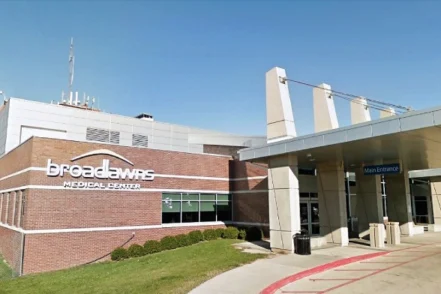 Iowa
IowaBroadlawns Medical Center New Connections
1801 Hickman Road Des Moines, Iowa 50314
-
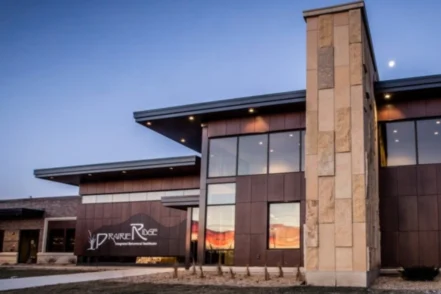 Iowa
IowaPrairie Ridge Integrated Behavioral Healthcare Mason City
320 North Eisenhower Avenue Mason City, Iowa 50402
-
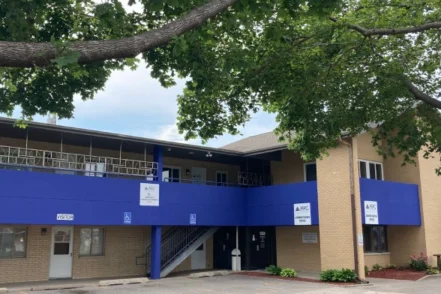 Iowa
IowaASAC Area Substance Abuse Council Main Campus
3601 16Th Avenue Sw Cedar Rapids, Iowa 52404
-
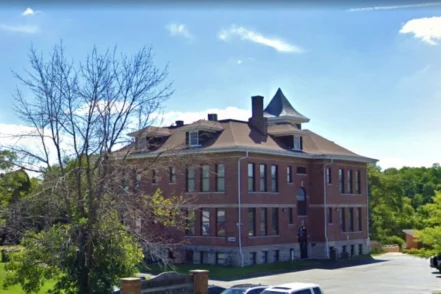 Iowa
IowaAlcohol and Drug Dependency Services ADDS Burlington
1340 Mount Pleasant Street Burlington, Iowa 52601
-
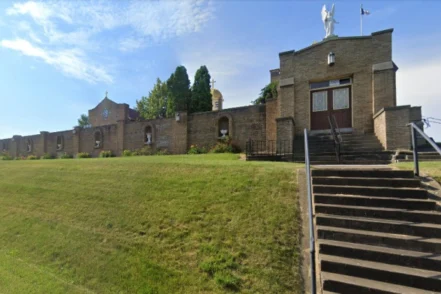 Iowa
IowaThe Abbey Center
1401 Central Avenue Bettendorf, Iowa 52722
-
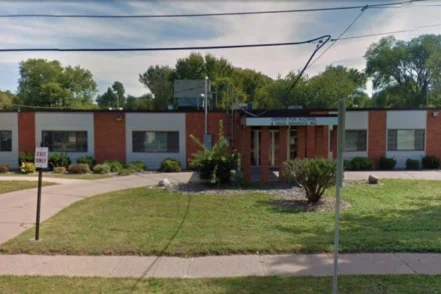 Iowa
IowaCenter for Alcohol and Drug Services CADS Fairmount
1523 South Fairmount Street Davenport, Iowa 52802
-
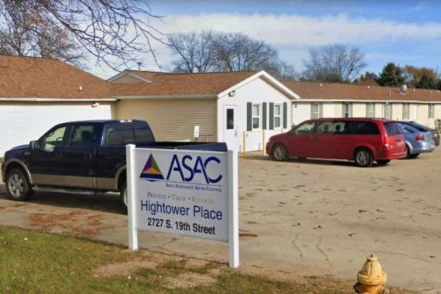 Iowa
IowaASAC Area Substance Abuse Council Hightower Place
2727 South 19Th Street Clinton, Iowa 52732
-
 Iowa
IowaASAC Area Substance Abuse Council ND Housing
2733 South 19th Street Clinton, Iowa 52732
-
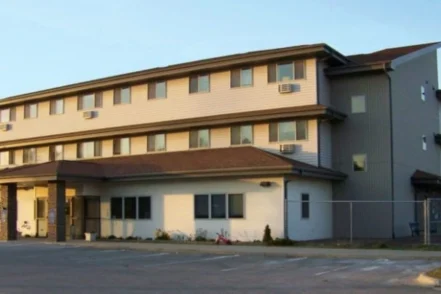 Iowa
IowaPrelude Behavioral Services Synchrony
438 Southgate Avenue Iowa City, Iowa 52240
